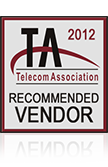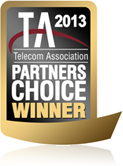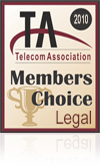Mobile Virtual Network Operators
More than 10 states are now regulating Mobile Virtual Network Operators (MVNOs) due to the rise in wireless use and a growing regulatory need to protect consumers, and the number is likely to increase.
As a result, this is an important time for MVNOs to be aware of existing regulatory obligations – both federal and state. MVNOs must also take into account the ongoing payment of federal and state taxes and assessments.
MVNO Lawyer
Ben Bronston is recognized nationally as an expert in telecom law. He can apply his more than 20 years of experience to assist you if you are a mobile virtual network operator.
There are many legal issues you may face as an MVNO. Ben Bronston has the knowledge and the background to help you regardless of the issue. Call Ben Bronston – Telecom/IT Lawyer today at 888.469.0579 to set up a consultation.
The telecommunication lawyers at Ben Bronston – Telecom/IT Lawyer can help an MVNO anywhere across the globe.
Key Issues for MVNOs
- Important Legal Background for MVNOs
- Federal – Section 214
- Federal 499-A Registration
- Exemption Certificates
Important Legal Background for MVNOs
The Omnibus Budget Reconciliation Act of 1993 pre-empts states from regulating entry and rates charged by wireless services. However, it does not prohibit states from requiring that wireless providers and resellers register with the state before providing service, nor does it prohibit state regulation in many areas such as E911, annual reporting, customer complaints and universal service, to name a few. Generally these state registrations are effective upon filing.
For instance, California requires all Commercial Mobile Radio Service (CMRS) (essentially meaning wireless service) providers and resellers, including MVNOs, to register with the state and provide limited corporate information.
Other states also have registration requirements that require corporate contact information substantially similar to that required in California. However, each state is different and some state registrations are more complicated, requiring information such as service and facilities descriptions, geographic scope of service, rates and Eligible Telecommunications Carrier status.
Federal – Section 214
Many MVNOs are under the mistaken belief that they do not need an FCC Section 214 authorization. While the FCC has taken some deregulatory actions with regard to wireless providers and resellers, such companies must hold a Section 214 authorization to provide U.S.-international service, even on a resold wireless basis.
The good news for MVNOs is that the Section 214 authorization application process is no longer as difficult and time-consuming as it once was. Applications are filed electronically and most applications will qualify for streamlined processing and should be granted on the fifteenth day after filing. Complications that can delay this time cycle may arise if the company has significant foreign ownership.
MVNOs should also be aware of federal regulations requiring that the purchase or sale of the stock or assets of an authorized MVNO be approved by the FCC before such a transaction is completed. Many companies do not consider the regulatory implications of such transactions until the transaction is already completed. This can result in costly enforcement penalties being assessed against a company.
Federal 499-A Registration
MVNOs must register with the FCC and the Universal Service Administrative Company (USAC) by submitting an FCC Form 499-A to USAC. Once registered, MVNOs must file FCC Form 499-A annually and FCC Form 499-Q quarterly to report revenues that are used to calculate contributions to the Universal Service Fund (USF), North American Numbering Plan Administration (NANPA), Local Number Portability (LNP) and Telecommunications Relay Service Fund (TRS).
The FCC recently intensified its enforcement efforts against providers that do not register or pay USF and other assessments. It’s important to have a qualified telecom attorney on your side helping you with compliance.
Exemption Certificates
To enter the wireless resale business, an MVNO must also consider ongoing payment of federal and state taxes and assessments as they relate to the company’s position in the “service provider chain.” At the federal level, MVNOs are responsible for USF, NANPA, LNP and TRS assessments as well as the federal excise tax (FET). At the state level, MVNOs must consider state sales taxes as well as other state taxes and assessments.
MVNOs, as entities reselling telecommunications service to end user customers, are generally required to remit payments associated with these assessments directly to the appropriate regulatory authority. These assessments typically can be recouped by charging them back to end users.
MVNOs should use exemption certificates to establish with their underlying provider that the MVNO will make payments directly to the regulatory authority to avoid potential double-billing and penalties. Double-billing can result if an MVNO that is making payments directly to the appropriate regulatory authority does not submit an exemption certificate to its underlying provider and the underlying provider charges the MVNO for these assessments.
The MVNO would then have to dispute its bill and demonstrate to its underlying provider that it has been making payments directly to the regulatory authority. Exemption certificates are essential to determine from the outset of a business relationship that the MVNO will be responsible for paying applicable taxes, and to ensure that both entities have adequate records to respond to any potential collection actions.
New entrants to the MVNO market, as well as existing MVNOs, face growing regulatory compliance obligations at the state and federal levels. Among other things, these obligations include obtaining FCC Section 214 authority, registering via a FCC Form 499-A and addressing federal and state regulatory assessment and tax requirements.













